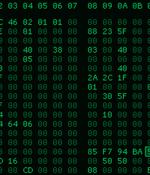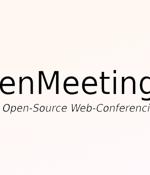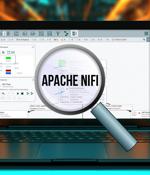Security News

Recently disclosed security flaws impacting Juniper firewalls, Openfire, and Apache RocketMQ servers have come under active exploitation in the wild, according to multiple reports. "This flaw allows an unauthorized user to exploit the unauthenticated Openfire Setup Environment within an established Openfire configuration," cloud security firm Aqua said.

Misconfigured and poorly secured Apache Tomcat servers are being targeted as part of a new campaign designed to deliver the Mirai botnet malware and cryptocurrency miners. The findings come...

Multiple security flaws have been disclosed in Apache OpenMeetings, a web conferencing solution, that could be potentially exploited by malicious actors to seize control of admin accounts and run malicious code on susceptible servers. "The acquired admin privileges can further be leveraged to exploit another vulnerability allowing attackers to execute arbitrary code on the Apache OpenMeetings server."

A financially motivated threat actor is actively scouring the internet for unprotected Apache NiFi instances to covertly install a cryptocurrency miner and facilitate lateral movement. "The attack script is not saved to the system. The attack scripts are kept in memory only."

If you're running an Apache NiFi instance exposed on the internet and you have not secured access to it, the underlying host may already be covertly cryptomining on someone else's behalf. "Routers make bad cryptomining servers. Cryptomining may be what they end up doing if the lateral movement doesn't get them anywhere."

The U.S. Cybersecurity and Infrastructure Security Agency has added three flaws to the Known Exploited Vulnerabilities catalog, based on evidence of active exploitation. The second flaw to be added to the KEV catalog is CVE-2021-45046, a remote code execution affecting the Apache Log4j2 logging library that came to light in December 2021.

Apache Superset is vulnerable to authentication bypass and remote code execution at default configurations, allowing attackers to potentially access and modify data, harvest credentials, and execute commands. Apache Superset is an open-source data visualization and exploration tool initially developed for Airbnb before it became a top-level project at the Apache Software Foundation in 2021.

An insecure default configuration issue makes most internet-facing Apache Superset servers vulnerable to attackers, Horizon3. Administrators in charge of Apache Superset instances should check whether they are among that lot, upgrade them to a fixed version, and check whether attackers might have exploited the weakness to breach them.

The maintainers of the Apache Superset open source data visualization software have released fixes to plug an insecure default configuration that could lead to remote code execution. Ai, described the issue as "a dangerous default configuration in Apache Superset that allows an unauth attacker to gain remote code execution, harvest credentials, and compromise data."

Apache Superset until earlier this year shipped with an insecure default configuration that miscreants could exploit to login and take over the data visualization application, steal data, and execute malicious code. Ai again checked to see how many Superset instances were configuring their app with a public default secret key.